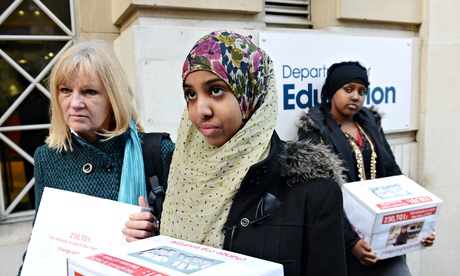
Britain's senior police officers have called for tighter laws to increase the likelihood of prosecution of those who carry out female genital mutilation (FGM) and of the parents who let it happen to their daughters.
The Association of Chief Police Officers (Acpo) argues that the law needs to be changed in order to increase the chance of conviction, as police forces come under increasing pressure to bring Britain's first case against a practitioner.
David Cameron has demanded "results" against those guilty of FGM, a practice involving the cutting of girls' genitals at an early age.
However, not a single case has been brought to the courts since specific laws against FGM were introduced in 1983 and 2002, with many experts blaming the difficulty of getting girls to testify against those who have mutilated them.
There are also growing suspicions that the legislation against FGM itself may be ineffective. In a submission to MPs on the home affairs select committee, Acpo has now proposed making the law tougher. It argued the government should close a loophole that makes it more difficult to prosecute cases where the cutter or victim are not permanent UK residents.
Acpo also said that the law should make a specific reference to "parental liability", making it clear that mothers and fathers who allow FGM to happen to their children can also be prosecuted.
There could also be a separate crime of reinfibulation – the sewing up of a women's vagina after she has given birth, the organisation said.
In a further attempt to increase prosecutions, Acpo said, it should be mandatory for those working in the NHS to refer cases of FGM to local authorities, who would then share information with the police.
Asked about Acpo's suggestions for changing the law, the Home Office said it was not responsible for this area, even though it takes the lead on stamping out FGM and ending violence against women.
The Ministry of Justice said it was not responsible for addressing the proposals either, although it will shortly seek views on whether to introduce civil court protection orders, which could help girls who feel they are at risk of FGM.
According to government figures, more than 20,000 British girls are thought to be at risk of being cut every year. But despite previous government promises to stop FGM, experts have warned that girls are not only still being taken abroad to be cut during the holiday "cutting season", but are also being mutilated in Britain.
Medical groups, trade unions and human rights organisations estimate that there are 66,000 victims of FGM in the UK and more than 24,000 girls under the age of 15 are at risk. Victims can be as young as just a few weeks old.
After a campaign by the Guardian, Michael Gove, the education secretary, has promised to write to every school in England about those who are at risk of female genital mutilation.
His pledge was given as he met Fahma Mohamed, the 17-year-old student who was the face of the campaign, which attracted nearly 250,000 signatures.
Praising her "inspirational" work, Gove agreed to write to primary and secondary headteachers drawing their attention to guidelines around the issue and reminding them of their duty towards schoolgirls.
Justice Minister Damian Green said: "The government is committed to tackling and preventing the harmful and unacceptable practice of female genital mutilation.
"As part of this cross-government work, the Ministry of Justice is considering suggestions for strengthening the criminal law and will shortly be seeking views on whether the introduction of a specific civil order could help protect potential victims of FGM."

